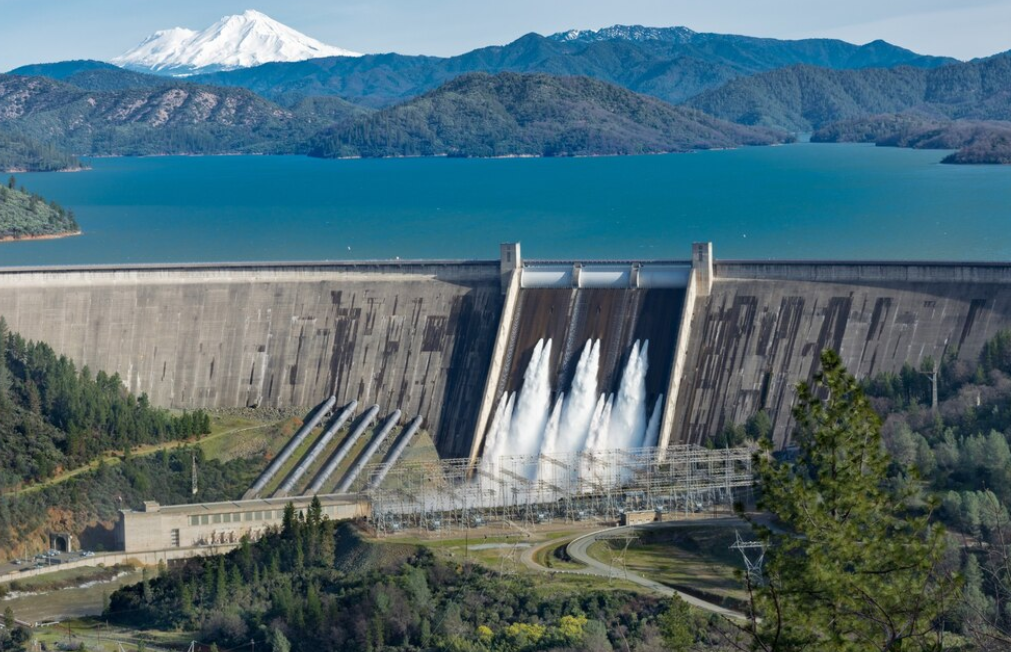In addition to being a significant engineering feat, the Grand Ethiopian Renaissance Dam (GERD) is a crucial geopolitical issue in the Nile River Basin. There has been much discussion and negotiation between Ethiopia, Egypt, and Sudan regarding the dam that is being built on the Blue Nile in Ethiopia. The GERD’s possible effects on regional water security, economic expansion, and diplomatic ties have grown as it approaches completion. With an emphasis on the years running up to 2025, this article explores the intricate geopolitics surrounding the GERD, its effects on the economies of Ethiopia, Sudan, and Egypt, as well as the wider ramifications for regional cooperation.
The GERD: A Vision of Progress and National Pride
Ethiopia’s ambitious project, which started in 2011, aims to establish Ethiopia as a major participant in Africa’s energy landscape by producing power for both domestic and export markets. When finished, the dam on the Blue Nile River—the main tributary of the Nile—should produce more than 6,000 megawatts of electricity, making it Africa’s largest hydroelectric power plant. In order to solve its ongoing energy problems, promote industrial expansion, and establish Ethiopia as a regional energy hub, the country sees the GERD as an essential part of its national development strategy.
The GERD is more than just an infrastructural project for Ethiopia. It is a representation of pride and sovereignty in the country. A tangible example of Ethiopia’s ability to use its natural resources for its own development free from outside intervention, the dam is a source of Ethiopian self-determination. With millions of Ethiopians expected to benefit from access to electricity—many of whom currently lack dependable power—the project is positioned as a tool for reducing poverty.
The Geopolitical Tensions: Egypt and Sudan’s Concerns
The GERD however, has created a great deal of conflict, particularly with Egypt, which views the project as a potential threat to its water supplies. The Nile provides more than 90% of Egypt’s freshwater. Egypt’s water supply is largely dependent on the Nile, therefore any disruption in its flow, whether due to upstream projects like the GERD or changed rainfall patterns brought on by climate change, is cause for grave concern.
Egypt claims that filling the GERD reservoir could affect its agricultural sector, which mostly depends on irrigation from the Nile, by reducing the flow of water downstream, especially during dry spells or periods of low rainfall. Additionally, the functioning of the GERD may restrict Egypt’s authority over the water of the Nile, a position Egypt has traditionally controlled through accords like the 1929 and 1959 Nile Water Agreements, which give Egypt and Sudan the majority of the Nile’s waters. Ethiopia, a non-party to these agreements, contends that the agreements are unfair and out of date since they fail to account for the needs of the nation’s development and population expansion.
Sudan, which is situated between Ethiopia and Egypt, is in a more difficult situation. Regarding the GERD, Sudan has voiced both support and concern. On the one hand, Sudan would gain from the dam’s controlled water flow, which would lessen flooding and allow for more precise irrigation. However, Sudan and Egypt are both worried about how the dam would affect the water flow overall, particularly if the reservoir is filled too quickly or without adequate coordination. Additionally, because the dam is within Sudanese territory and any breakdown may have disastrous results, Sudan is worried about its safety.
Economic Implications for Ethiopia and the Region
Ethiopia’s economic transformation depends on the GERD. With only about 40% of the population having access to power, Ethiopia, which has long had one of Africa’s fastest-growing economies, struggles with energy poverty. It is anticipated that the GERD will supply a sizable amount of the nation’s electricity, promoting industrialisation and opening up investment opportunities. In addition to providing for Ethiopia’s internal requirements, the energy produced by the dam is anticipated to be sold to other nations, creating foreign exchange and strengthening regional ties.
Ethiopia is not the only country that gains economically from GERD. Ethiopia has the potential to promote regional economic development by becoming a major provider of electricity to nations like Sudan, Djibouti, and Kenya. Long-term economic effects of the dam might be significant, encouraging further economic integration and regional collaboration in the Horn of Africa, an area that has historically been vulnerable to instability and fragmentation.
However, the GERD’s economic advantages depend on its smooth and effective functioning. Extended disagreements or delays in the dam’s filling process could jeopardise the project’s financial viability. Delays in filling the dam’s reservoir, for instance, would keep Ethiopia from reaching its energy targets, which would have negative economic effects and possibly engender discontent among Ethiopians.
The Role of International Mediation and Diplomacy
Egypt, Ethiopia, and Sudan have participated in several rounds of negotiations about the construction and operation of the GERD, which have frequently been mediated by international organisations including the United Nations (UN) and the African Union (AU). A legally binding agreement on the dam’s operation and water sharing is still elusive despite these efforts, and important topics including the dam’s filling schedule, dispute resolution procedures, and future operation are still up for debate.
Environmental and Climate Change considerations
Another area of disagreement is how GERD affects the environment. Environmental organizations have attacked the project, despite the fact that the dam is anticipated to produce clean energy and help Ethiopia achieve its carbon reduction targets. There have been worries expressed on the possible impacts of the dam’s construction on the ecosystem of the Nile, including modifications to sediment flow and the influence on aquatic biodiversity. Furthermore, the Nile basin’s water supply is permanently threatened by climate change, which could exacerbate tensions between Ethiopia, Sudan, and Egypt.
The Way Forward: Opportunities for Cooperation and Regional Integration
As the GERD draws closer to completion, it is becoming increasingly clear that regional cooperation is essential to resolving the underlying problems and guaranteeing the dam’s sustainable functioning. Deep geopolitical divisions have been revealed by the initiative, but it also offers Ethiopia, Egypt, and Sudan a chance to work together in a new way. The future of GERD depends on establishing mutual trust and resolving the unresolved problems in a way that benefits both parties.
The GERD has the potential to spur economic expansion, regional unification, and better ties with Ethiopia’s neighbors. With access to more dependable water flow and regional power supplies, the dam presents Egypt and Sudan with the opportunity to expand their regional cooperation. The GERD has the potential to change the geopolitical environment of the Nile Basin and promote greater stability, prosperity, and shared development if a cooperative framework can be put in place.
The opportunities and difficulties that characterize the Horn of Africa are reflected in the GERD. The dam is a source of conflict in the larger Nile Basin region as well as a representation of Ethiopia’s ambitions as of 2025. The GERD offers Ethiopia, Egypt, and Sudan a chance to work through their conflicts and work toward a future of cooperative progress and stability, despite the high geopolitical, economic, and environmental risks. The GERD’s next stage will require cautious diplomacy, fruitful discussion, and a dedication to common regional interests. The GERD has the potential to transform the Nile Basin’s destiny and establish it as a hub for economic and energy cooperation in Africa if it is properly managed.





